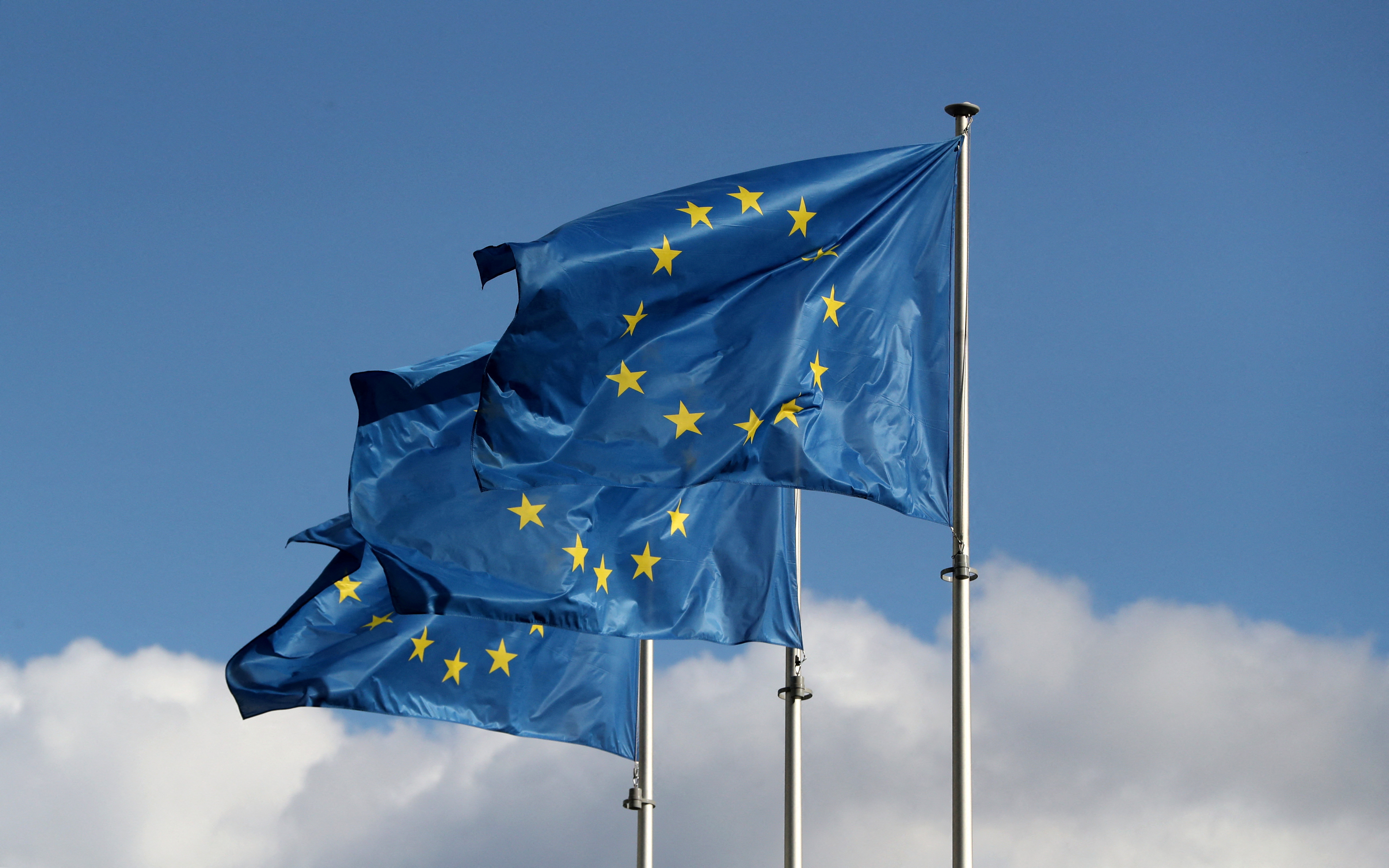The United States on Monday demanded that the European Union make its regulation of the tech sector more “balanced” in exchange for a reduction of U.S. tariffs on steel and aluminium imports from the bloc.
At a meeting in Brussels, EU ministers urged U.S. Commerce Secretary Howard Lutnick and Trade Representative Jamieson Greer to implement their July trade deal, with cuts to U.S. tariffs on EU steel and their removal from EU goods such as wine and spirits.
But Lutnick said the 27-nation EU first needed to rethink its digital sector rules to make them more balanced.
“Once they set a framework that we are comfortable with and we understand it, resolve these outstanding cases that are old, then I think we can go and attack the steel and aluminum,” Lutnick told reporters after the 90-minute meeting.
UNLOCKING A TRILLION DOLLARS OF INVESTMENT
Lutnick did not specify what changes the United States was seeking, but did say that balanced rules could draw a trillion dollars of investment to the EU.
The Trump administration has consistently criticised EU rules that curb the power of tech giants and requires large online platforms to tackle harmful content, saying they unfairly target U.S. tech companies.
The European Commission has repeatedly said it is the sovereign right of the EU to regulate and pointed to actions against non-U.S. firms.
European Trade Commissioner Maros Sefcovic said EU tech rules were not discriminatory.
“They are not aimed at US companies, but we know that this is one of the issues the U.S. wants to discuss. We are prepared to respond to the question as the US is prepared to respond to our inquiries,” he said.
Under the end-July deal, the United States set 15% tariffs on most EU goods, while the European Union agreed to remove many of its duties on U.S. imports.
Given the need for approval from the European Parliament and EU governments, that may only happen in March or April, which EU diplomats say has exasperated Washington.
The 27-nation bloc has meanwhile pointed to agreed items on which it wants to see progress, chief among them steel and aluminium.
The United States has a 50% tariff on the metals and since mid-August has applied this to the metal content in 407 “derivative” products such as motorcycles and refrigerators. More derivatives may be added next month.
EU FEARS HOLLOWED-OUT DEAL
EU diplomats say that such actions, along with the prospect of new tariffs on trucks, critical minerals, planes and wind turbines, threaten to hollow out the July accord.
The bloc also wants a broader range of its products subject only to low pre-Trump duties. Its wish list includes wine and spirits, olives, pasta, medical devices and biotech.
Greer said the EU needed to remove tariffs on U.S. imports before such discussions could begin.
The EU is also ready to discuss areas of possible regulatory cooperation, the bloc’s purchases of U.S. energy, which has hit $200 billion this year, and joint efforts on economic security, particularly in response to Chinese rare-earth and chip export restrictions.






Click here to change your cookie preferences